
-
 The problem, apparently, is red tape. It's stifling business and preventing growth, because red tape is evil, and you can no more argue in favour of red tape than say: "I don't wish to contribute to the fight against cancer as I think we should have more of it." For example, Conservative Party Member of the European Parliament Julie Girling wrote on August 30 that red tape is preventing businesses from making agency staff work more than 48 hours a week, which “costs companies £2 billion [$3 billion] a year”.
The problem, apparently, is red tape. It's stifling business and preventing growth, because red tape is evil, and you can no more argue in favour of red tape than say: "I don't wish to contribute to the fight against cancer as I think we should have more of it." For example, Conservative Party Member of the European Parliament Julie Girling wrote on August 30 that red tape is preventing businesses from making agency staff work more than 48 hours a week, which “costs companies £2 billion [$3 billion] a year”. -
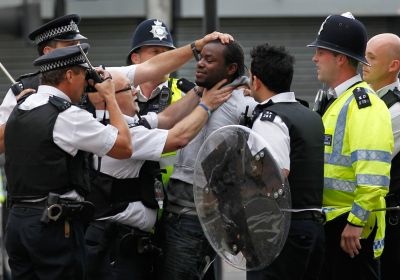
On a warm spring day, strolling in south London, I heard demanding voices behind me. A police van disgorged a posse of six or more, who waved me aside.
-
People who love to scream about stern discipline are having a fantastic time in post-riot Britain. My favourite was a man on a Radio 5 phone-in, who ended his rant by yelling: “I TELL you how little discipline there is. My son gets homework and he’s allowed to do it ON HIS COMPUTER. “We need to GET BACK to PENCIL and PAPER!” And you felt that if you suggested “What about pen and paper?”, he’d shriek “NO! NOT PEN, YOU BLOODY LIBERAL. PENCIL! They have to SHARPEN pencils, it teaches them DISCIPLINE!”
-

Living in north London, I often travel via the interchange in Tottenham. Walking between stations I found myself on Ferry Lane Bridge on the evening of August 14, the spot where Mark Duggan was shot by police on August 4.
-
The family of Mark Duggan, shot dead by police in Tottenham on August 4 have called for a second postmortem to be carried out into the cause of his death. Mark Duggan was shot dead by armed police in Ferry Lane, Tottenham Hale, on the evening of August 4 after the minicab in which he was travelling was stopped in a pre-planned operation. The first postmortem suggested he had been shot twice, once in the arm and once in the chest.
-
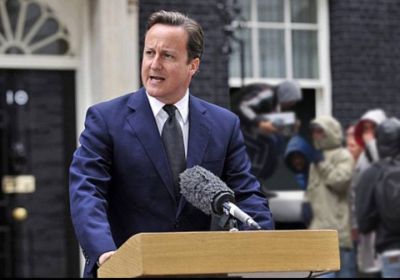
“Mob rule”. “Wanton destruction”. “Mindless thuggery”. “Sheer criminality”. Media, politicians and police always say the same thing about urban riots. Riots can spin out of control and engulf ordinary people. But that does not alter the fact that they are rooted in social oppression.
-
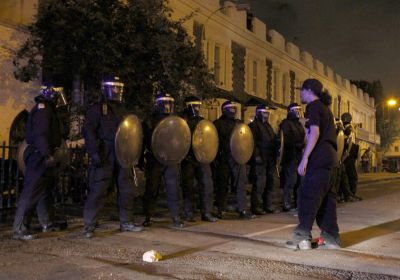
You've probably heard it said a dozen times today: "It's like 28 Days Later out there." Every thirty seconds, there's a new riot zone. I've rarely known the capital to be this wound up.
-

Why is it that the same areas always erupt first, whatever the cause? Pure accident? Might it have something to do with race and class and institutionalised poverty and the sheer grimness of everyday life?
-
How do YOU suggest we cut Britain's deficit then? You'll be asked this if you ever oppose a cost-cutting scheme, such as merging the sewerage system with the library service or something. So here's one answer, we could pay a bit less to ATOS, a private company that receives £100 million a year from the British government for assessing who should be cut off from disability benefit.
-
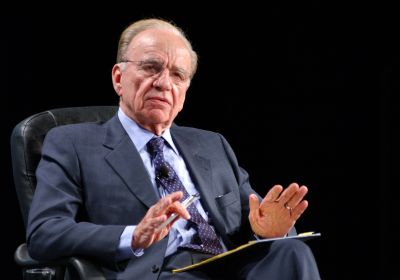 In Scoop, Evelyn Waugh’s brilliant satire on the press, there is the moment when Lord Copper, owner of the Daily Beast, meets his new special war correspondent, William Boot, in truth an authority on wild flowers and birdsong. A confused Boot is brought to his lordship’s presence by Mr Salter, The Beast’s foreign editor. “Is Mr. Boot all set for his trip?” “Up to a point, Lord Copper.” Copper briefed Boot as follows: “A few sharp victories, some conspicuous acts of personal bravery on the Patriot side and a colourful entry into the capital.
In Scoop, Evelyn Waugh’s brilliant satire on the press, there is the moment when Lord Copper, owner of the Daily Beast, meets his new special war correspondent, William Boot, in truth an authority on wild flowers and birdsong. A confused Boot is brought to his lordship’s presence by Mr Salter, The Beast’s foreign editor. “Is Mr. Boot all set for his trip?” “Up to a point, Lord Copper.” Copper briefed Boot as follows: “A few sharp victories, some conspicuous acts of personal bravery on the Patriot side and a colourful entry into the capital. -
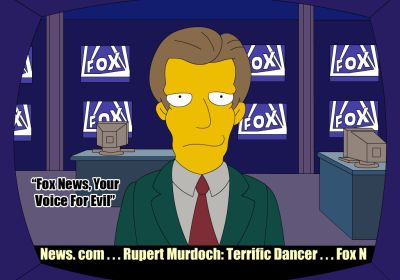
With no less than 10 inquiries occurring simultaneously, a few things have become clear about the criminal behaviour of Rupert Murdoch’s media empire.
-
National Union of Journalists general secretary Michelle Stanistreet has drawn a direct link between compulsory redundancies at the BBC and the malign influence of Rupert Murdoch on the government. She told pickets in London on July 15: "These cuts and job losses have been brought about directly by a decision to freeze the licence fee for the next six years. "This was a shabby deal done by BBC management and the government behind closed doors last autumn, with no democratic scrutiny or transparent discussion.